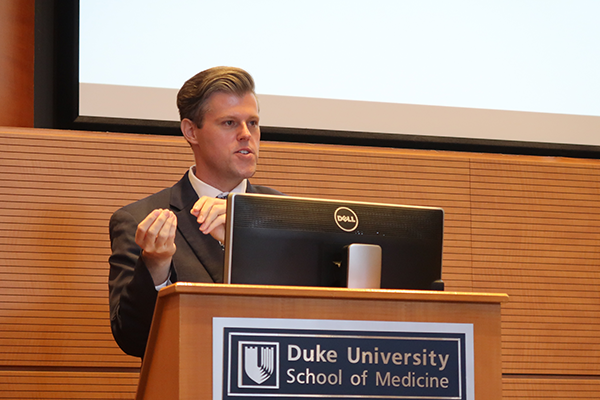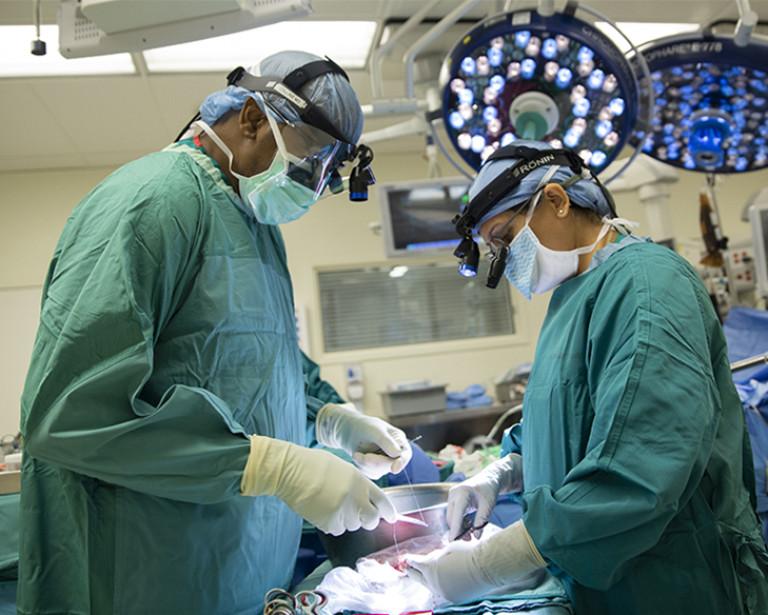New Center for Precision Health Aims to Transform Population Health, Patient Care September 7, 2023
CTSI has launched the Center for Precision Health (CPH), a collaboration led by Svati Shah that will harness the power of genomic, biomarker, and health data to transform patient care and population health.
Graduate Students Receive 2023 Chancellor’s International Awards
The Office of Biomedical Graduation Education honored exceptional second-year international PhD students with nine prestigious International Chancellor’s Scholarships.
What to Expect From COVID This Fall
Speaking to media in a virtual briefing, infectious disease specialist Dr. Cameron Wolfe and David Montefiori, Ph.D., director of the Duke Human Vaccine Institute, said booster shots continue to be effective for those Americans who routinely get them.
Empowering Black Staff: ME² Black Employee Resource Group
Duke University School of Medicine’s Black Employee Resource Group, ME², aims to foster a community focused on networking, professional development, and leadership opportunities for Black staff.
Congratulations, Summer 2023 Graduates
Congratulations to the students from the Duke University School of Medicine who graduated this summer from health professions and biomedical PhD programs.
New Intravenous Lipid Nutrition Cuts Pediatric Hospitalizations and Infections
A formulation for intravenous nutrition that includes four lipid sources, including fish oil, reduced hospitalizations and urinary tract infections among pediatric patients at Duke Children’s Hospital.
Leaders Advocate for Community-Centered Mental Health Solutions
State, federal, and international health and human services leaders discussed the current challenges and initiatives relating to behavior and mental health. The panel shared strategies, policies, and innovative thinking in understanding and tackling mental health which may be the nation's newest pandemic.
New Curriculum Advances Cardiovascular Genetics Education
As genetic and genomic research continues to rapidly evolve, scientists and researchers are gaining a deeper understanding of the role of genetics in health and disease.
Antibody Shows Promise for Preventing Organ Rejection After Transplantation
A man-made antibody successfully prevented organ rejection when tested in primates that had undergone a kidney transplant, Duke Health researchers report. The finding clears the way for the new monoclonal antibody to move forward in human clinical trials.
New Blood Test Detects a Key Indicator of Parkinson’s Disease
Duke Health researchers have developed a blood test that detects Parkinson’s disease, potentially establishing a way to help diagnose the condition before nervous system damage worsens.









